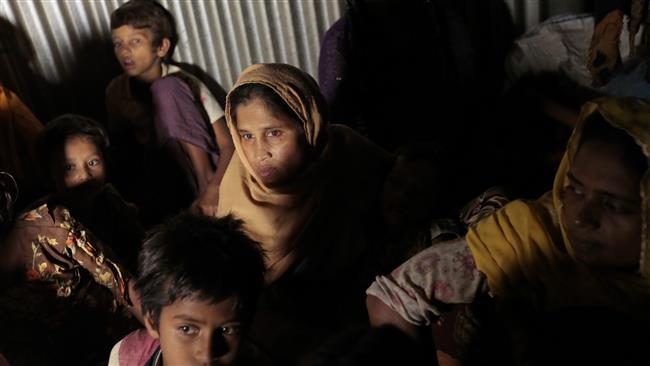
RNA - Rohingya leaders in Bangladesh said that at least 3,500 had arrived since then, piling pressure onto already overcrowded refugee camps in the Cox’s Bazaar area near the Naf River that divides the two countries, Al Waght reported.
That is despite stepped-up patrols by Bangladeshi border and coast guards, who said this week they had pushed back a boat carrying 31 Rohingya, including children. “In the Balukhali camp alone, some 3,000 Rohingya arrived from their villages in Rakhine,” said Abdul Khaleq, referring to the camp nearest the river, where most of the migrants stay when they first arrive.
Kamal Hossain, a Rohingya elder in another, camp, told AFP taht nearly 700 families had arrived in Bangladesh in the past 11 days.
Dhaka estimates that nearly 400,000 Rohingya refugees are living in squalid refugee camps and makeshift settlements in Cox’s Bazar. They included more than 70,000 who arrived in the months that followed the crisis in October.
Rakhine was plunged into renewed violence last October when security forces started a brutal operation against Rohingya Muslim during which government troops have engaged in rape, killings, torture and pillage across the region.
The country’s de-facto leader, Aung San Suu Kyi, who was awarded the Nobel peace prize in 1991, has been criticized by more than a dozen fellow laureates for the armed response. They wrote an open letter to the UN Security Council warning of a tragedy “amounting to ethnic cleansing and crimes against humanity” in Rakhine state.
Rakhine State in west Myanmar has seen the most serious violence perpetrated against Muslims in predominantly Buddhist Myanmar since the military began to end its decades of strict rule. Reports indicate that thousands of Rohingya Muslims were killed and hundreds of thousands were displaced there in attacks by regime forces and extremists Buddhists since in 2012 in a deliberate state-backed policy of ethnic cleansing and genocide.
847/940